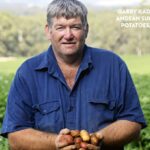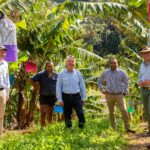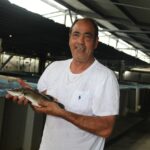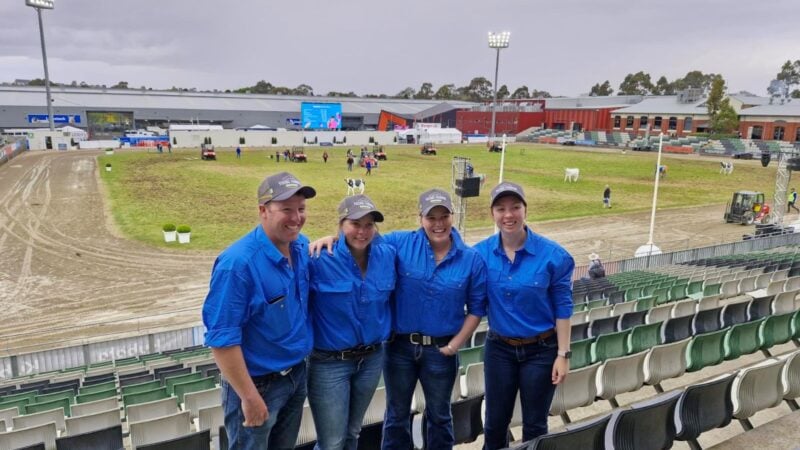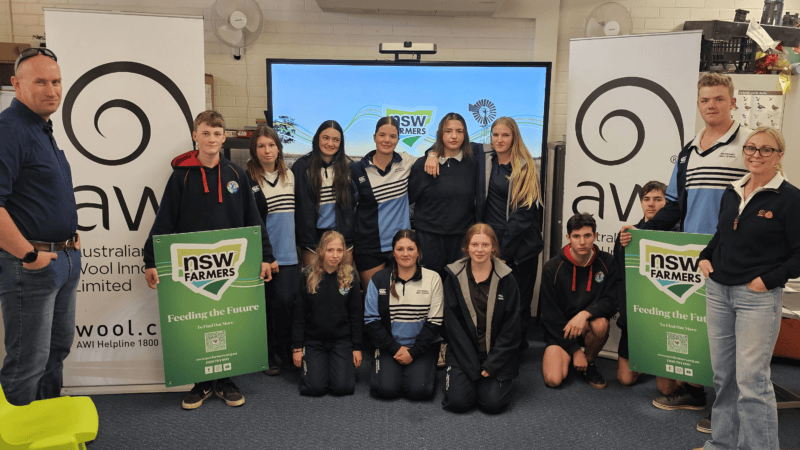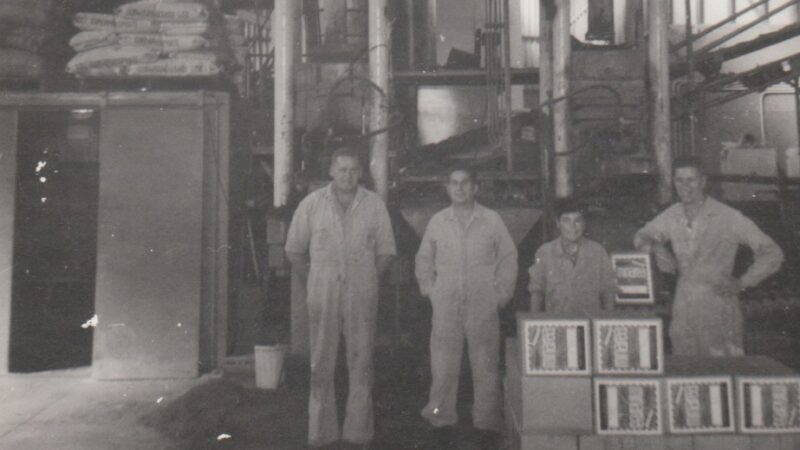Garry Kadwell, a fourth-generation potato farmer from Crookwell in the NSW Southern Tablelands, has been…
Former NSW Farmer of the Year winners
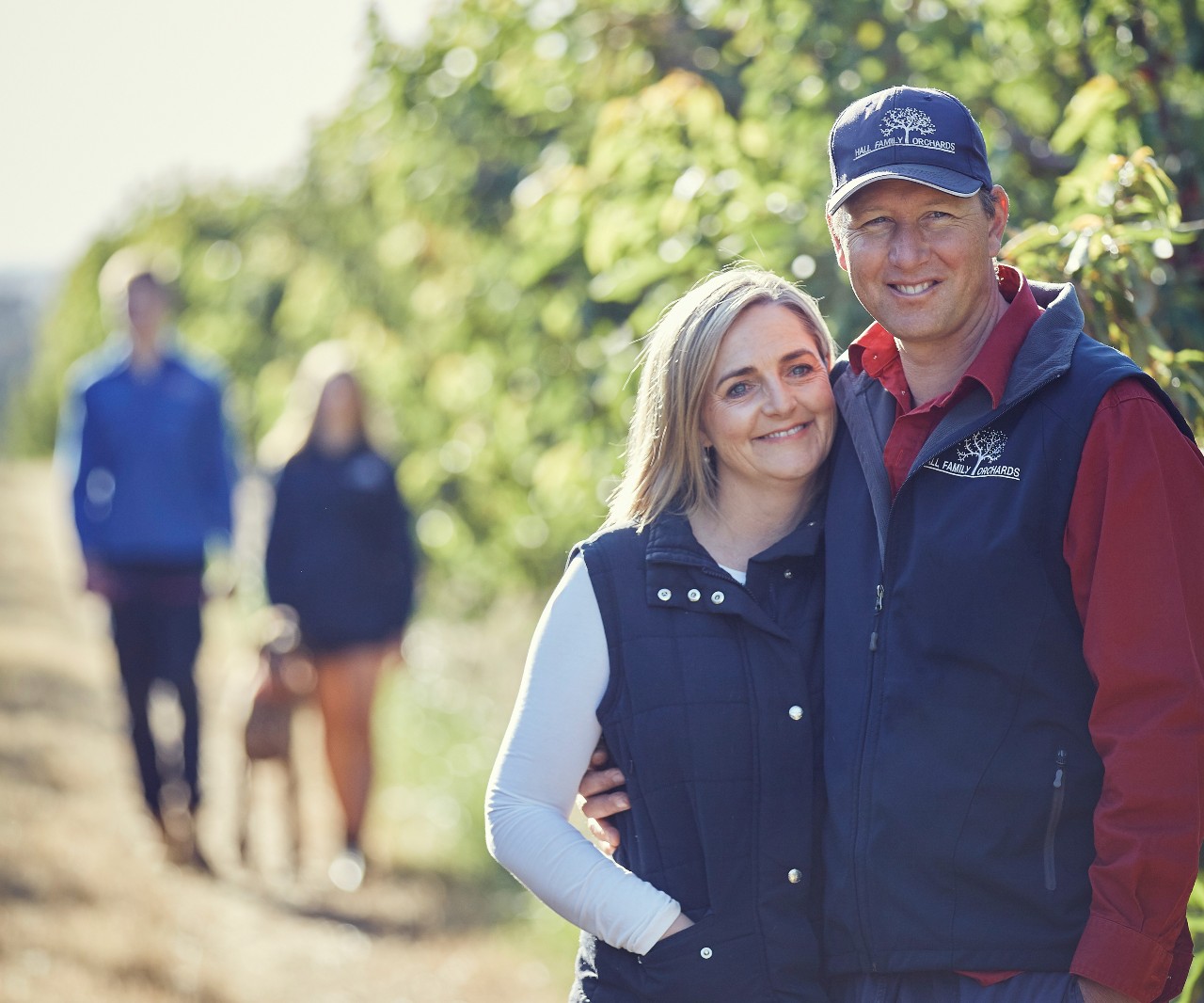
The diversity of NSW’s farmers is reflected in the 2019, 2018, 2017 and 2016 winners of the NSW Farmer of the Year award.
Each deserving winner operates in different farm sectors, but they all share a tenacious drive when it comes to implementing innovative farm practices to improve productivity.
In this series of special holiday reports, The Muster, looks back at past winners to learn how their approaches to farming have helped them get through this most difficult year with bushfires and a pandemic severely impacting production.
2019 – Chris Hall and Hall Family Orchards
Chris Hall and his team at Hall Family Orchards in Wombat, NSW, took out the NSW Farmer of the Year honour last year for showing a strong commitment to chemical-free cherry farming.
Being named the 2019 winner has meant Chris’ forward-thinking ideas and farming practices – which focus on regenerative horticulture – have spread far and wide for the betterment of the broader industry.
This focus on chemical-free farming has also protected Hall Family Orchards from the risks associated with ever-changing export issues as some countries have moved to ban fruit with certain chemical residues.
To read more about Chris and Hall Family Orchards, please click here.
2018 – Glen and Julie Andreazza
Griffith irrigators, Glen and Julie Andreazza, were crowned NSW Farmers of the Year in 2018 after two years of drought and dealing with the ramifications of very low water availability.
The Andreazza’s supply wheat to Arnott’s for Tim Tams and Scotch Finger biscuits.
But they have also now returned to rice and more recently added popcorn, which presented itself as an opportunity last year as it was one of only a few crops that offered enough potential to offset high water prices.
The couple was recognised for being able to balance sustainability with profits, while offsetting the risks of seasonal conditions.
They say the accolade has led to many opportunities, including Julia being asked to speak at events and on podcasts to tell the story of her mental health challenges.
To read about the Andreazza’s, please click here.
2017 – Mike and Velia O’Hare
Canola, wheat and lamb producers, Mike and Velia O’Hare, were named the 2017 NSW Farmers of the Year for their adaptable farming practices at their 2200-hectare mixed farm in Beckom, south west NSW.
They produce canola, wheat and lamb in a rotational cropping and grazing system based upon nitrogen-fixing hard-seeded pasture legumes headed by biserrula.
They say winning the award allowed them to promote safe, sustainable and profitable farming to the wider community but also allowed them to see their business through the eyes of others.
Since the win, the duo has made a substantial change to their sheep enterprise with the introduction of SheepMaster genetics.
“SheepMaster is a relatively new 100 per cent shedding, high fertility, meat sheep with good feet and leg structure,” Mike says.
To read more about the O’Hares, please click here.
2016 – Nick Arena
Nick Arena took out the NSW Farmer of the Year award in 2016 in recognition for a clever diversification strategy that included him establishing a fish production business, but also an onsite restaurant and function centre called Cook-a-Barra.
The diversified operation, at Bobs Farm in NSW, means guests can enjoy the barramundi grown on the property that they can also see on a tour. The restaurant also has its own hydroponic vegetable farm so that all food is fresh from the source.
Whilst the business is drought-proof, it was heavily impacted by COVID-19 with the restaurant, like all others, being forced to close its doors without any notice.
Having to close the restaurant – which has now reopened – wasn’t too problematic, but Nick says the effect on the fish production side of the business was more dramatic.
“The demand and price both dropped, but our costs such as staff and power remained the same. We saved some money on feed costs because we had to pull back so that the fish didn�t get too large for our market,� said Nick.
He said winning the award has allowed him to gain contacts within government bodies who can assist with rectifying industry issues when they arise.
To read more about Nick and his story, please click here.


